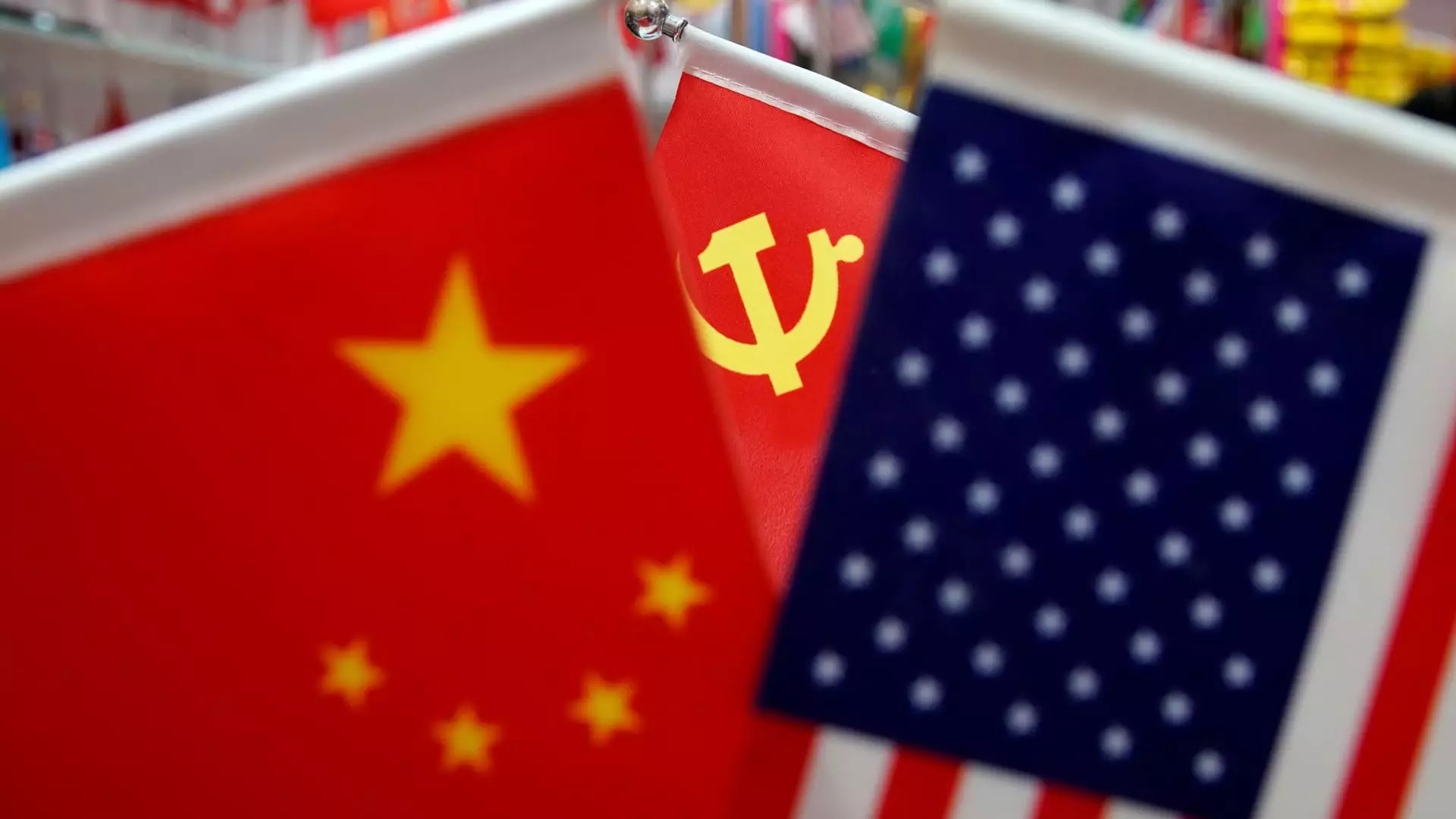In the context of the evolving political landscape and impending economic policies from the incoming U.S. administration, China’s approach to financial diplomacy has reached a critical juncture. The country’s Vice Premier He Lifeng has been actively engaging with top U.S. finance executives to foster relations and mitigate potential trade tensions. This outreach comes in light of President-elect Donald Trump’s aggressive tariff proposals aimed at China, highlighting a strategic maneuver that reflects China’s intent to solidify its economic position in a period of uncertainty.
Throughout the past month, He Lifeng conducted several pivotal meetings with leaders from major financial institutions, including prominent figures such as Larry Fink of BlackRock and John E. Waldron from Goldman Sachs. These occasions are not mere formalities; they symbolize China’s broader strategy of wooing influential financial leaders in an effort to buffer against potential economic isolation arising from U.S. policy shifts. Peter Alexander, an expert in Chinese financial advisory, noted that these back-channel communications are indicative of China’s preference for quieter, relationship-building strategies, recognizing the importance of solid ties with those who will have a role in shaping U.S. economic policy.
In addition to Fink and Waldron, He Lifeng also engaged with other notable finance executives from Citigroup, Invesco, and HSBC. This multi-faceted approach underscores a clear message from China: it is willing to embrace greater foreign investment and is intent on presenting an image of openness in its financial sector, especially in light of trading uncertainties.
Assessing the U.S. Financial Leadership Under Trump
The onset of the Trump administration introduces a team populated by numerous high-profile financial figures, including prominent billionaires. Financial background is prevalent among key Cabinet members, and this could potentially temper the administration’s trade policies. As analysts suggest, the presence of such seasoned financiers could play a moderating role against the more protectionist impulses indicated during campaign rhetoric. Clark Packard from the Cato Institute emphasizes the significance of these financial voices, suggesting their potential influence on fostering a market-sensitive approach to trade policy.
However, concerns remain about how these leadership choices might coalesce into coherent policy. The global stock market’s favorable performance could serve as a buffer against any overly aggressive tariff regimes. Financial markets possess their own power to shape economic policy, as any adverse market reactions to protectionist measures could compel even a resolute administration to reconsider its approach.
Observing the U.S. financial engagement, it’s evident that China is not merely waiting for external decisions; it is actively preparing for varying economic scenarios. With a marked shift toward fiscal stimulus signs in China, there are efforts to buffer domestic markets against external shocks. Analysts like Zongyuan Zoe Liu point out that actions such as reaching out to Wall Street executives and tightening control over critical exports manifest a dual-layer strategy: fostering integration with global finance while also safeguarding domestic interests.
Moreover, the reception of foreign capital is often framed within the narrative of economic resilience and growth potential within China. This narrative serves to reassure domestic investors and attracts foreign ones, which could bolster China’s market as a viable opportunity amidst rising geopolitical tensions.
The Future of U.S.-China Financial Relations
Winston Ma, an advisor on U.S.-China financial relations, outlined the dichotomy of prospects that lie ahead: a constructive engagement could lead to mutual prosperity, while adverse relations could culminate in mutual destruction. This statement underscores the enormous stakes of the U.S.-China financial relationship, one that has evolved into one of the most interconnected arenas of global finance over the past two decades.
The current efforts by He Lifeng and his team to engage U.S. financial executives reflect a desperate yet strategic move to navigate these turbulent waters. The outcomes of these interactions could very well set the tone for cooperation or conflict as the two largest economies in the world face a period of adjustment in economic policies.
China’s proactive engagement in financial diplomacy suggests a deeply strategic approach to counter possible threats from U.S. economic policies. As both nations stand at a crossroads, the ensuing dialogue among finance leaders may determine the trajectory of their complex economic relationship.

Leave a Reply